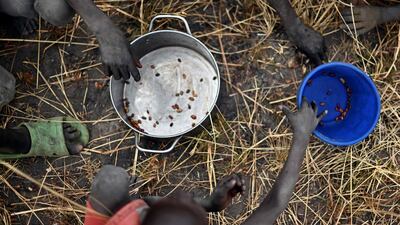The number of people needing aid has grown by 40 per cent globally because of the coronavirus pandemic, with hotspots in Yemen, Syria, Afghanistan and other turbulent countries, the United Nations said on Tuesday.
The world body's annual Global Humanitarian Overview estimated that 235 million people worldwide will need some form of emergency relief next year and called for a record $35 billion of funding to pay for it.
“Humanitarian aid budgets face dire shortfalls as the impact of the global pandemic continues to worsen,” UN Secretary-General Antonio Guterres said at a virtual event to present the report in Geneva.
The world body says it needs $35 billion to provide “life-saving support” to 160 million people around the world who have been ravaged by the impacts of the pandemic, climate change, conflict and famine.
The UN document offers plans to tackle crises in 56 countries, including Yemen, Syria and Afghanistan, which have been affected by years of war, as well as other troubled areas across Africa, Asia and the Middle East.
The coronavirus pandemic has killed about 1.5 million people globally and infected 63 million. It has wiped out hundreds of millions of jobs, plunged millions into extreme poverty and pushed the world economy into recession.
“The rich world can now see the light at the end of the tunnel,” said UN humanitarian chief Mark Lowcock.
“The same is not true in the poorest countries. The Covid-19 crisis has plunged millions of people into poverty and sent humanitarian needs skyrocketing.”


